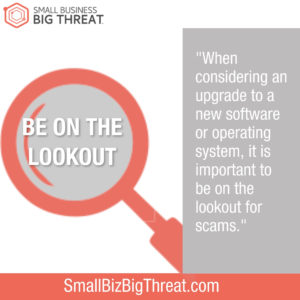With the recent announcement of Windows 11 coming out for the 2021 holiday season, cyber scammers have been fast at work deploying fake installers. IT security website, BleepingComputer, reports that hundreds of Windows users have been impacted by these fake installers. These installers are actually installing malware on these Windows computers. As many of you are well aware, when new technology or software is announced, the cybercriminals waste little time trying to take advantage.
Be on the lookout
When considering an upgrade to a new software or operating system, it is important to lookout for scams. In this particular case the user is installing malicious software, known as malware, onto their computers. These scam will get worse the closer we get to the actual release date of Windows 11. I would expect payloads of ransomware and backdoors to be installed on victims’ computers in the future.
Holiday 2021 and Winter 2022
It is important to remember that Windows 11 is first being released on new computers for the holiday 2021 season. It will then later be released as updates starting in Winter 2022 at the earliest. To learn more about the Windows 11 update and steps you can take to prepare your small business check out our Security Byte from last month.
Some exceptions to the rule
There are some exceptions to the Windows 11 release. Microsoft offers a chance to see the new version of Windows if you are a member of their Windows Insider Program. So if you are not signed up with this program, your “early release” or “free upgrade” is almost certainly a fake. Cybercriminals will almost certainly start flooding our inboxes with phishing emails offering free upgrades. So as always, stay diligent when clicking on new emails in your inbox.
For more information on cybersecurity or to test your cybersecurity knowledge, check out Small Business, Big Threat!
